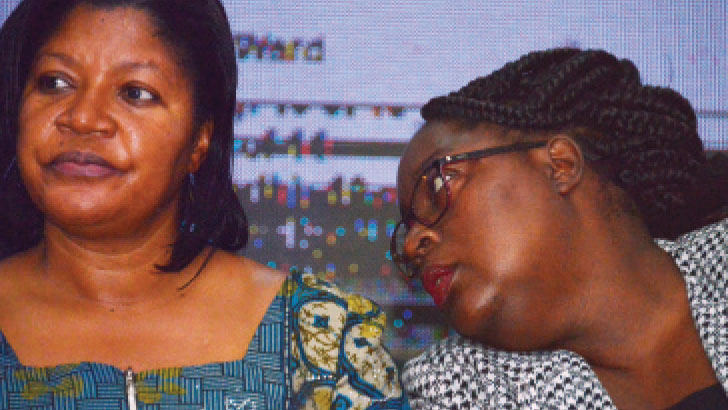MEC is back
Malawi Electoral Commission (MEC) estranged commissioners Jean Mathanga and Linda Kunje have obtained a High Court stay order restraining government from removing them from their positions.
The court, through Justice Jack Nriva, has also granted the two a request to apply for a judicial review of the decision taken by the Secretary to the President and Cabinet Zanga-Zanga Chikhosi to dismiss them.
In its communication dated April 7 2021, the Office of the President and Cabinet (OPC) said it had rescinded the appointment of Mathanga and Kunje because they were adjudged incompetent by the Malawi Supreme Court of Appeal in the May 21 2019 presidential election nullification case.
Besides the court raising questions about their competence in managing the election, the Public Appointments Committee (PAC) of Parliament also found them incompetent in relation to the disputed presidential election.

However, the court’s issuance of the stay order, obtained through lawyers Ritz Attorneys at Law, effectively means thei status before the rescission of their appointments prevails.
In an interview, Ritz Attorneys at Law spokesperson Lozindaba Mbvundula said the two commissioners will have to apply for a judicial review of government’s decision before the court sets a date for hearing of the matter.
She said: “The implication of the order is that the decision of the Secretary to the President and Cabinet is no longer of any effect until the determination of this matter. That means the applicants [commissioners] can continue to discharge their duties as commissioners for now.”
Mbvundula said following the court’s granting of permission for an application for judicial review, the two embattled commissioners will file the application without any preconditions.
Legal commentator Michael Goba Chipeta said in a separate interview that the court order means MEC could “most definitely” proceed implementing its programmes that were suspended due to the absence of the two commissioners.
The order comes after the immediate-past governing Democratic Progressive Party (DPP)—which sponsored the two—also dragged President Lazarus Chakwera and Chikhosi to court to seek nullification of his decision.
The DPP has dragged Chakwera and Chikhosi to court also as a way of applying for a judicial review to declare government’s decision illegal and unconstitutional.
Justice William Msiska of the High Court is tomorrow expected to hear an application on whether to commence judicial review or not tomorrow.
Malawi Congress Party (MCP) has since reportedly applied to join the judicial review in question, saying they are an interested party and are now waiting for a determination of their application to join.
Earlier, the High Court dismissed MCP’s application to join another case in which Kunje and Mathanga also dragged government to court demanding their offer letters of appointment and benefits as MEC commissioners.
Government’s decision to fire the two commissioners was against Attorney General (AG) Chikosa Silungwe’s advice and also came at a time there are already two cases in court on the same issue.
The first case involves Mathanga and Kunje seeking offer letters and honoraria and the second is where MCP wants the two and others removed from MEC.
Divergent views have also emerged among different legal minds after the AG opined that MEC was crippled due to the dismissal of two of its commissioners.
The AG said one of the effects of the rescission of the appointment of the two commissioners was that there was no Electoral Commission in accordance with Section 75 (1) of the Constitution and advised MEC that the remaining commissioners should not discharge any duty or power of the commission under the Constitution or an Act of Parliament until Section 75 (1) of the Constitution had been complied with.
But two legal scholars- both professors of law- Garton Kamchedzera and Danwood Chirwa and the Malawi Law Society (MLS) decried the situation saying there was no complication.
Chirwa, who teaches law at the University of Cape Town in South Africa, told The Nation last week that while the AG’s guidance was correct to some extent, the commission could still carry out some operations.
While agreeing with the AG on the provisions of Section 75 (1) of the Constitution, MLS president Patrick Mpaka, just like Chirwa observed, MEC operations could not completely stop because Section 11 of the Electoral Commission Act determines the quorum of the commission.






One Comment